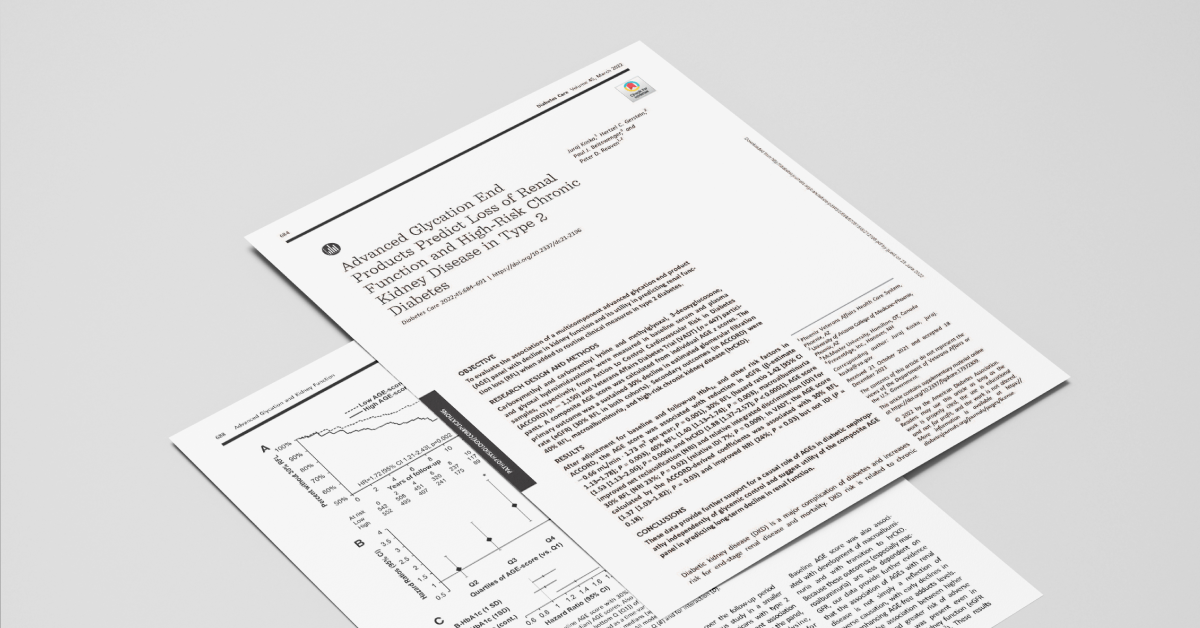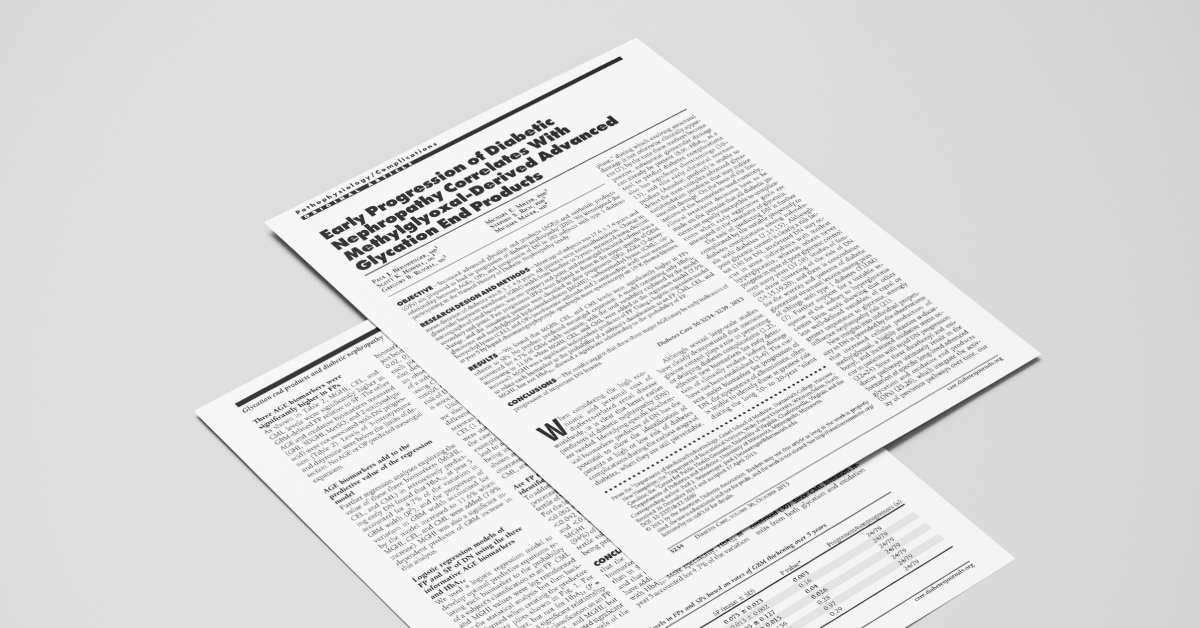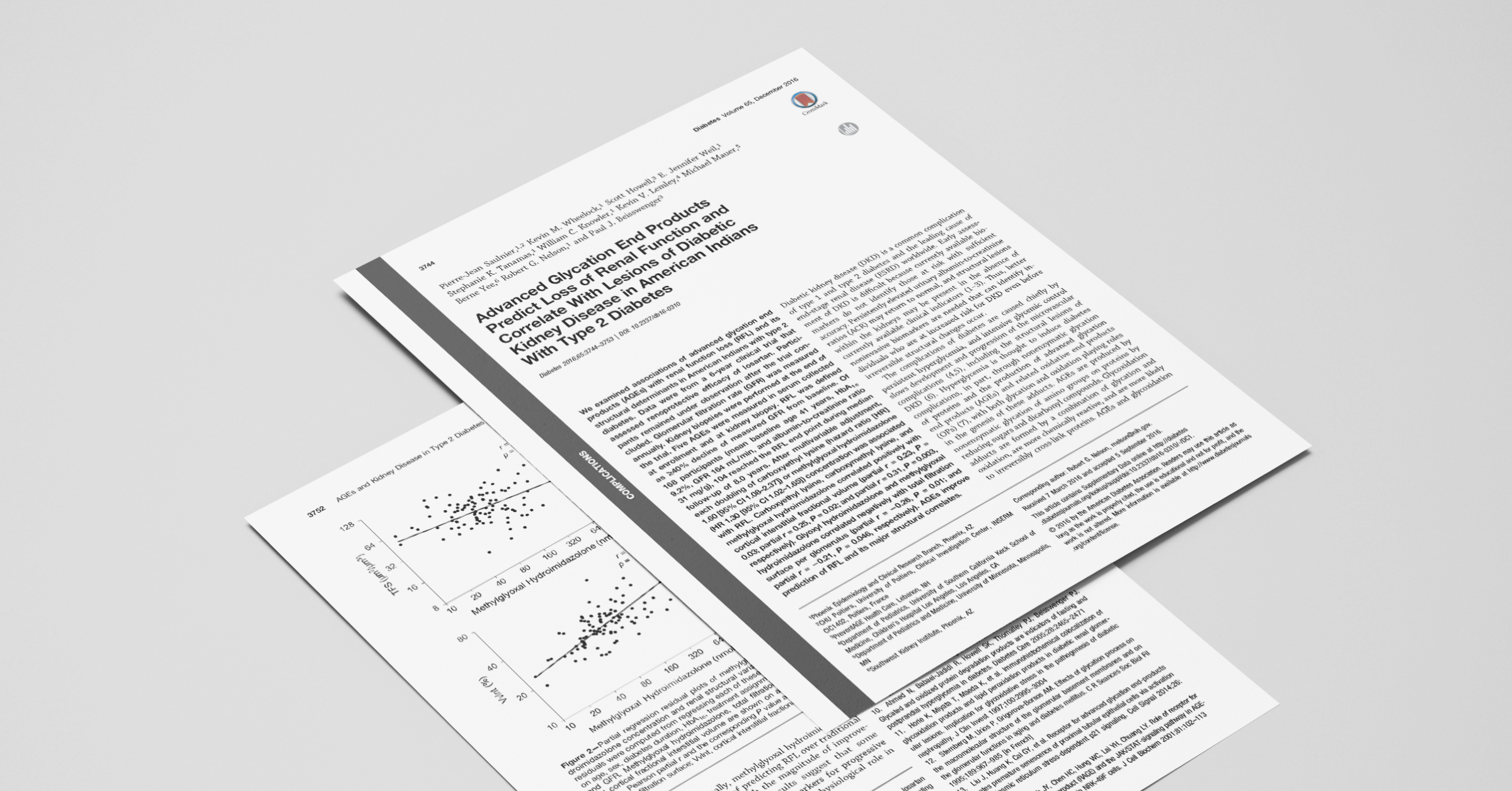PUBLICATION DATE: JULY 1, 2018
Introduction: Early diagnostic measures that predict development of complications in individuals with type 1 diabetes would be clinically relevant. Our goal was to determine if glycative and oxidative stress biomarker levels are independent risk factors in the development of advanced diabetic kidney disease (DKD) prior to detection of overt disease in the DCCT and follow-up EDIC.
Methods: Using a case-cohort design, we measured plasma and urine levels of 5 Advanced Glycation (AGEs) and 2 oxidation end-products by LC-MS/MS in 109 DKD cases (>40% eGFR decline from baseline confirmed on two consecutive visits) and 350 non-progressor controls. Sampling, done at study baseline and three other time points during DCCT and early EDIC prior to later GFR decline, was analyzed by Cox models adjusted for risk covariates (Age, HbA1c, BMI, HDL, LDL, Sex, SBP, and DBP) to assess the association between the AGEs and risk of DKD.
Results: Significant associations between GFR decline and plasma biomarkers occurred for three specific AGEs: Carboxymethyllysine (CML, p=0.003), 3-deoxyglucosone hydroimidazolone (3DG-H, p=0.0007), and carboxyethyllysine (CEL, p=0.021) using multi-variate adjusted analyses. Prediction by AGEs was independent of HbA1c at the same time points. Urinary AGEs were not predictive. Calculation of c-statistics also showed that plasma 3DG-H significantly increased predictive value for progression of DKD above traditional risk factors.
Conclusions: Two predictive AGEs, CML and CEL, previously shown to predict DKD (Diabetes Care, 36, 3234-9, 2013) were found to independently identify progression in DCCT/EDIC. DKD prediction by 3DG-H also confirms prior data showing that DKD is associated with increases in its precursor, 3-deoxyglucosone. Early identification of those at high risk of progression to DKD by measuring specific AGEs may provide predictive power above traditional risk factors and allow the institution of preventive therapies.





